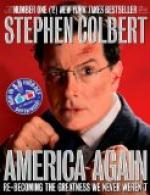“We’re stuck between two rivers: that’s what’s happened,” Mac added savagely. “Might have guessed that miserable little Cullen was up to her old sneaking ways.” And to explain Mac’s former “dratting,” the Maluka said: “It’s a way the rivers have up here. They entice travellers over with smiles and promises, and before they can get back, call down the flood waters and shut them in.”
“I’m glad I thought of the wire,” Mac added cheerfully, and slipped into reminiscences of the Wet, drawing the Maluka also into experiences. And as they drifted from one experience to another, forced camps for days on stony outcrops in the midst of seas of water were touched on lightly as hardly worth mentioning; while “eating yourself out of tucker, and getting down to water-rats and bandicoots,” compared favourably with a day or two spent in trees or on stockyard fences. As for crossing a river on a stout wire rope! After the first few reminiscences, and an incident or two in connection with “doing the horse’s-tail trick,” that appeared an exceedingly safe and pleasant way of overcoming the difficulty, and it became very evident why women do not travel “during the Wet.”
It was a singularly beautiful night, shimmering with warm tropical moonlight, and hoarse with the shouting of frogs and the roar of the river—a night that demanded attention; and, gradually losing interest in hair-breadth escapes from drowning, Mac joined in the song of the frogs.
“Quar-r-rt pot! Quar-r-rt pot!” he sang in hoarse, strident minims, mimicking to perfection the shouts of the leaders, leaning with them on the “quar-r-rt” in harsh gutturals, and spitting out the “pot” in short, deep staccatos. Quicker and quicker the song ran, as the full chorus of frogs joined in. From minims to crotchets, and from crotchets to quavers it flowed, and Mac, running with it, gurgled with a new refrain at the quavers. “More-water, more-water, hot-water, hot-water,” he sang rapidly in tireless reiteration, until he seemed the leader and the frogs the followers, singing the words he put into their mouths. Lower and lower the chorus sank, but just before it died away, an old bull-frog started every one afresh with a slow, booming “quar-r-rt pot!” and Mac stopped for breath. “Now you know the song of the frogs,” he laughed. “We’ll teach you all the songs of the Never-Never in time; listen!” and listening, it was hard to believe that this was our one-time telegraphing bush-whacker. Dropping his voice to a soft, sobbing moan, as a pheasant called from the shadows, he lamented with it for “Puss! Puss! Puss! Puss! Poor Puss! Poor Puss!”
The sound roused a dove in the branches above us, and as she stirred in her sleep and cooed softly, Mac murmured drowsily: “Move-over-dear, Move-over dear”; and the dove, taking up the refrain, crooned it again and again to its mate.
The words of the songs were not Mac’s. They belong to the lore of the bushmen; but he sang or crooned them with such perfect mimicry of tone or cadence, that never again was it possible to hear these songs of the Never-Never without associating the words with the songs.




